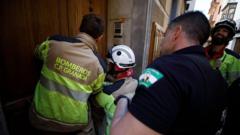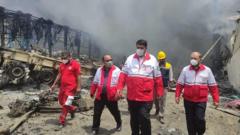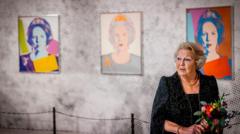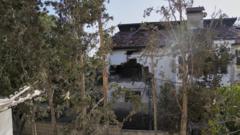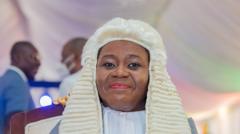In a significant move three decades post-apartheid, President Cyril Ramaphosa has initiated a judicial inquiry into claims of political manipulation concerning the prosecution of crimes committed during the apartheid regime. This development arises from a lawsuit by survivors and the families of victims who argue the state has not adequately addressed these historical injustices. Established in 1996, the Truth and Reconciliation Commission (TRC) unveiled numerous atrocities but saw minimal cases lead to court. Through this inquiry, the government aims to uncover the truth and bring closure to these long-standing grievances. The plaintiffs, notably including the son of Fort Calata of the Cradock Four, have expressed ongoing frustration over inaction since their loved ones’ murders by state forces in 1985. Concerns of a secret arrangement between the ruling African National Congress (ANC) and the apartheid government to sidestep accountability have also been raised, although the ANC has refuted these claims. The structure and timeline for the inquiry will be announced shortly, marking a pivotal moment in South Africa's quest for justice.
**South Africa Launches Historic Inquiry into Apartheid Prosecutions**
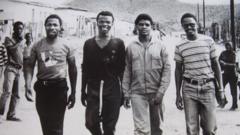
**South Africa Launches Historic Inquiry into Apartheid Prosecutions**
In a bid for justice, South Africa's government announces an investigation into the handling of apartheid-era crime prosecutions.
**South Africa Launches Historic Inquiry into Apartheid Prosecutions**
In a bid for justice, South Africa's government announces an investigation into the handling of apartheid-era crime prosecutions.
In a significant move three decades post-apartheid, President Cyril Ramaphosa has initiated a judicial inquiry into claims of political manipulation concerning the prosecution of crimes committed during the apartheid regime. This development arises from a lawsuit by survivors and the families of victims who argue the state has not adequately addressed these historical injustices. Established in 1996, the Truth and Reconciliation Commission (TRC) unveiled numerous atrocities but saw minimal cases lead to court. Through this inquiry, the government aims to uncover the truth and bring closure to these long-standing grievances. The plaintiffs, notably including the son of Fort Calata of the Cradock Four, have expressed ongoing frustration over inaction since their loved ones’ murders by state forces in 1985. Concerns of a secret arrangement between the ruling African National Congress (ANC) and the apartheid government to sidestep accountability have also been raised, although the ANC has refuted these claims. The structure and timeline for the inquiry will be announced shortly, marking a pivotal moment in South Africa's quest for justice.
In a bid for justice, South Africa's government announces an investigation into the handling of apartheid-era crime prosecutions.
In a significant move three decades post-apartheid, President Cyril Ramaphosa has initiated a judicial inquiry into claims of political manipulation concerning the prosecution of crimes committed during the apartheid regime. This development arises from a lawsuit by survivors and the families of victims who argue the state has not adequately addressed these historical injustices. Established in 1996, the Truth and Reconciliation Commission (TRC) unveiled numerous atrocities but saw minimal cases lead to court. Through this inquiry, the government aims to uncover the truth and bring closure to these long-standing grievances. The plaintiffs, notably including the son of Fort Calata of the Cradock Four, have expressed ongoing frustration over inaction since their loved ones’ murders by state forces in 1985. Concerns of a secret arrangement between the ruling African National Congress (ANC) and the apartheid government to sidestep accountability have also been raised, although the ANC has refuted these claims. The structure and timeline for the inquiry will be announced shortly, marking a pivotal moment in South Africa's quest for justice.

